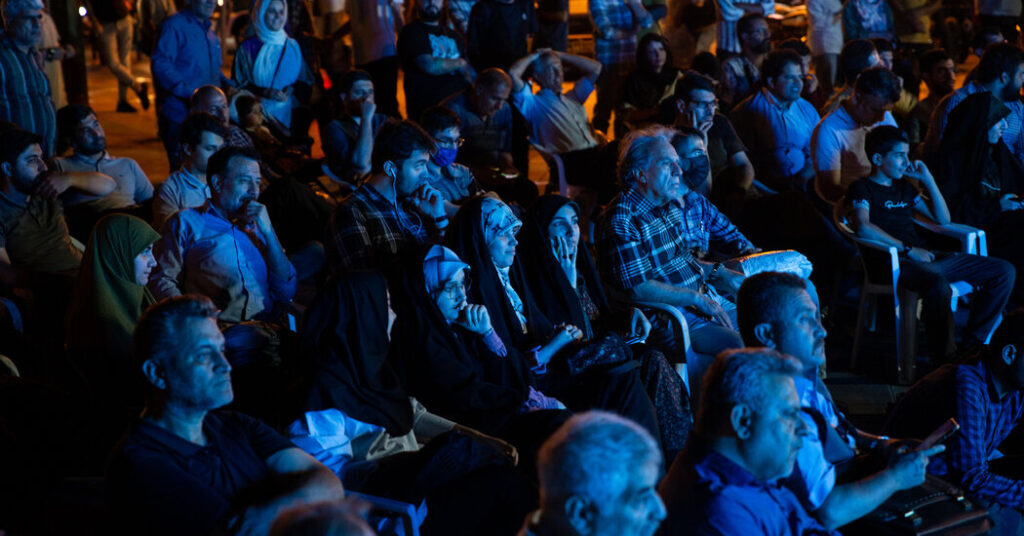Iran's next presidential election will be held on June 28, a year earlier than scheduled, following the death of President Ebrahim Raisi in a helicopter crash last month. The election will bring new leadership to the Islamic Republic amid domestic discontent, voter apathy and regional unrest.
While the country's Supreme Leader Ayatollah Ali Khamenei has final say on all state matters, the Iranian president sets domestic policy and has some influence over foreign policy.
Why is this election important?
The election is an opportunity for Iran's leadership to show it can handle a disaster like the president's unexpected death without destabilizing the country, while also dealing with domestic protests and tensions with the United States and Israel.
The elections also provide an opportunity for the leadership to remind the public that while Iran is a theocratic state, elections are also being held for government positions such as president, parliament and council members.
But who can run for president is tightly controlled, and if, as expected, one of the conservative candidates close to the clerical leadership wins, the government is likely to claim it as a political victory, despite the strict constraints on the competition.
Will the elections be free and fair?
Iran's elections are not considered free or fair by most Western standards or by human rights groups. Presidential candidates are rigorously vetted by a Guardian Council made up of 12 jurists and clerics.
In that election, the council whittled down 80 candidates to just six, including seven women, a former president and a number of senior government officials, lawmakers and ministers.
Who are the candidates?
All but one are politically conservative, and all support clerical rule. Iranian conservatives are also very wary of Western values and morals, while reformists favor greater flexibility in regulating social behavior and greater engagement with the West.
Among the conservatives is General Mohammed Bagher Ghalibaf, the current speaker of parliament, a former mayor of Tehran, a former commander of the Revolutionary Guards and a two-time failed presidential candidate. Reputedly close to Khamenei, Ghalibaf faces allegations of corruption and ideological hypocrisy which he denies.
Other conservatives include current Tehran mayor Alireza Zakhani, ultraconservative former chief nuclear negotiator Saeed Jalili, cleric and former counterintelligence chief Mostafa Pourmohammadi, and Amirhossein Ghazizadeh Hashemi, one of Raisi's vice presidents.
In an unusual move, conservative candidates have openly criticised the government for the country's economic woes, foreign policy failures and domestic turmoil, campaigning to garner support from voters who are increasingly frustrated and alienated by the country's clerical leadership.
The only reformist candidate is Dr. Masoud Pezeshkian, a doctor from Azerbaijan's ethnic minority who trained as a heart surgeon and served as a member of parliament and health minister. Experts believe his candidacy is part of a government plan to increase voter turnout, which the government believes could make the election more legitimate and bring back reformist parties that boycotted March's parliamentary elections.
“They bet, perhaps incorrectly, that this guy might generate enough interest among a public that isn't interested in the political process,” said Ray Takei, an Iran expert and senior fellow at the Council on Foreign Relations.
What are the main issues?
Iranians are struggling with a government that many see as ineffective and incapable of making meaningful change, with the economy, U.S.-led sanctions and women's rights at the heart of the election issues.
Sanctions, though imperfect, are straining the Iranian economy. Economic hardship is tied to other grievances, including a public perception of incompatibility with a government that preaches sanctity but brutalizes women, experts say.
“Corruption is very unpopular among the people, but it seems to be tolerated within the regime,” Takei said. “There's a disconnect. The people are struggling economically, suffering inflation and unemployment, and these guys are driving BMWs. This is not a good image for a sacred republic.”
Farnaz Fassihi Contributed report.

